Welcome to the justice funnel. We invite you to explore the work that The Just Trust and our partners are doing across the country to narrow the funnel into the justice system, vastly improve the experience inside, safely expand the funnel out, and help people stay out, for good.
At The Just Trust, we rigorously track the impact of our advocacy investments in five key areas:
Offense (policies that passed)
Defense (bad bills blocked or harmful elements minimized)
Incremental (policies that are in progress and may take multiple legislative cycles to pass or not pass)
Implementation (turning policy wins into sustainable impact)
Narrative (storytelling campaigns or milestones)
We also track these things against the 4 parts of the justice funnel you’re about to dive into, so that we can understand how our investments and activities are beginning to change the shape of the funnel, and give it a new flow over time.
Since 2022 when we began our work, we have tracked 1,173 individual impacts towards a better system of justice and safety in America. These impacts represent 770 discrete policy and narrative wins in 46 states, noting that some policies impact multiple parts of the justice funnel at once. We love efficiency around here.
As you move through the content below, please note that the data in this report is not meant to tell a complete story of justice reform in America. It’s a way to begin understanding some of the more tangible impacts of The Just Trust’s own grantmaking, research, and communications work to support grantees over time. And while the data is comprehensive, we know it’s a significant underrepresentation of the work our partners are doing in the world. Each year we get better at tracking and collecting data, adding and building to tell a stronger story. This is just the beginning.
(Note – the funnel data below represents only impacts related to our advocacy grantmaking. It does not track media investments, sponsorships, and other non-advocacy support.)
We have an incredibly wide funnel into the American justice system. That’s because we use it to treat every problem under the sun. A tool belt with one big tool.
Our work at The Just Trust is about making sure we have the best and most diversified tool belt the world – the right interventions meeting the right problems at the right time. That can mean being removed from the community for public safety reasons if necessary (see "middle of the funnel"), but other times it means access to addiction treatment, counseling, education or work programs. Narrowing the funnel in is about building our capacity to respond in smarter, more data-informed and human-centered ways to reduce future crime and hold people accountable in transformative ways.
Since The Just Trust started making investments in justice reform in 2022, approximately 36.5% of the total impacts tracked were focused on safely shrinking the funnel in. This includes everything related to justice system intake – from initial contact with emergency response systems, to charging, the courts, and sentencing.
2024-2025 Snapshots
Texas: Justice Research Group supported Harris County leaders to move an independent mobile crisis response program (dispatching mental health clinicians to handle certain emergency calls) permanently into the county's public health department. This ensures that crisis response programs are supported for the long run, and also frees up law enforcement to focus on preventing and solving violent crime.
Oklahoma: Oklahomans for Criminal Justice Reform and the Terence Crutcher Foundation helped pass a bill expanding the number of mental health, substance use, diversion, education, housing, and employment programs that can be funded through Oklahoma’s County Community Safety Investment Fund. It ensures every county gets a predetermined portion of the fund, ensuring smaller, rural towns can access services that address the root causes of crime.
Oregon: Drug Policy Alliance helped protect and expand Oregon’s addiction services infrastructure, ensuring that HB 5204’s allocation of $211.2M included major funding for residential beds, crisis stabilization centers, opioid use disorder medication treatment, legal support, and community mental health programs.
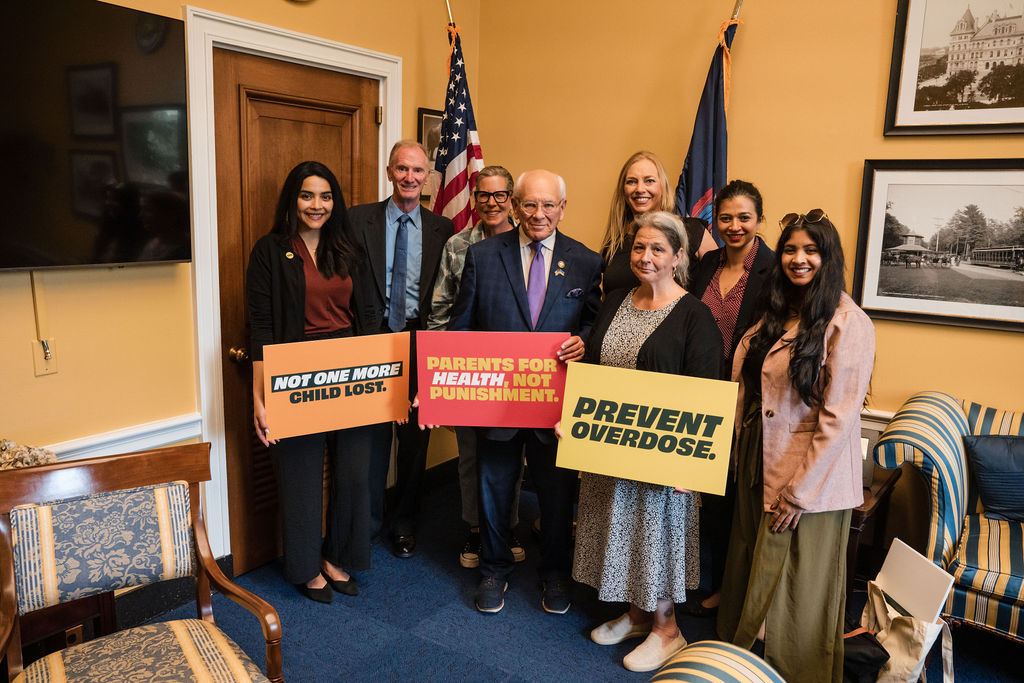
Arkansas: Human Rights for Kids and the Conservative Political Action Committee (CPAC)’s Center for Combating Human Trafficking worked with lawmakers across the aisle on a bold bill, making Arkansas the first state to categorize children – who were recruited into gangs and coerced into committing crimes – as victims. This unlocks a suite of support services, helping kids avoid growing up in the justice system while getting the help they need. It could also save taxpayers $1M+ a year and prevent future crime by helping kids avoid gang life and access job opportunities and other support.
Louisiana: Invest in Louisiana and Louisiana Progress worked on a bill to reduce penalties for possessing personal marijuana paraphernalia. Instead of jail time, people now face fines, representing a shift toward more proportionate responses to minor drug offenses.
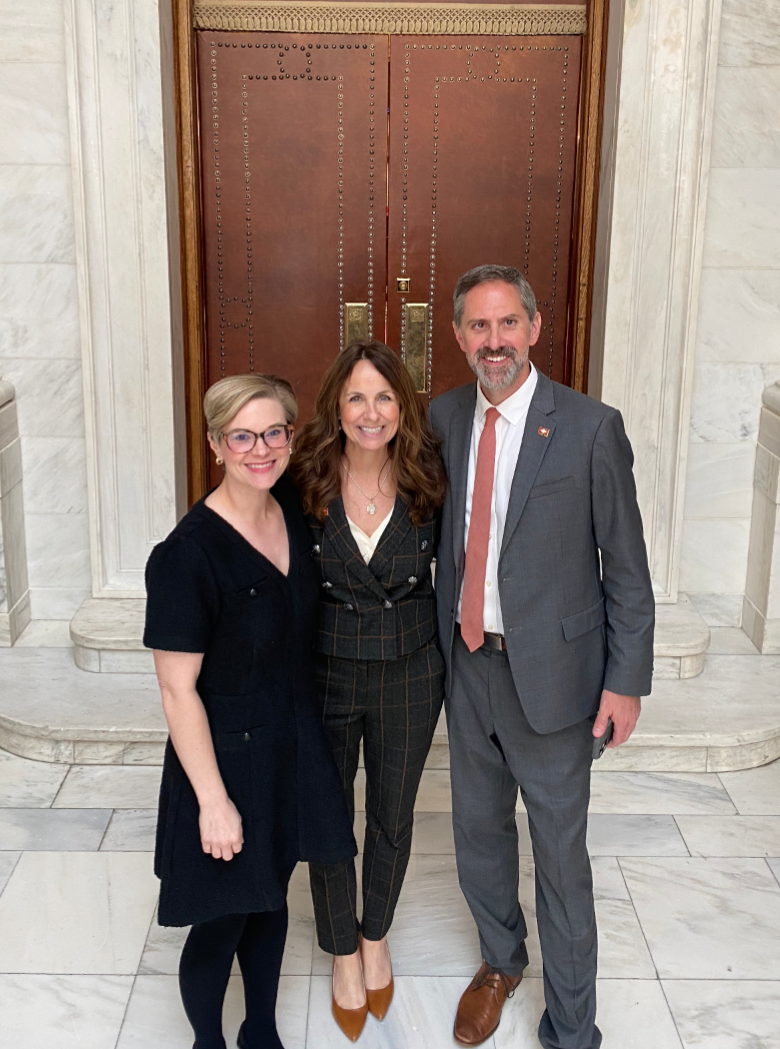
West Virginia: The West Virginia Center of Budget and Policy and the American Friends Service Committee helped defeat a bill that proposed elevating the crime of trespass from a misdemeanor to a felony, which would increase the number of homeless people in jail and prison. Killing this bill means that people continue to be held responsible for their conduct, but in more proportionate ways that also don’t unnecessarily add to unsafe overcrowding.
North Dakota: Prison Fellowship, Conservative Political Action Committee (CPAC), and Unify.us blocked legislation that would have removed incentives to earn earlier release through good behavior and participation in rehabilitation programs; restricted work release eligibility and conditions for incarcerated individuals; and increased mandatory minimum sentences for certain offenses.
Missouri: FAMM and Unify.us successfully blocked HB 862, the lead in a series of bills in the House and Senate that would create significant time served requirements (truth in sentencing). Bills like this remove any incentive for people to work hard, get an education, and earn time off their sentence.
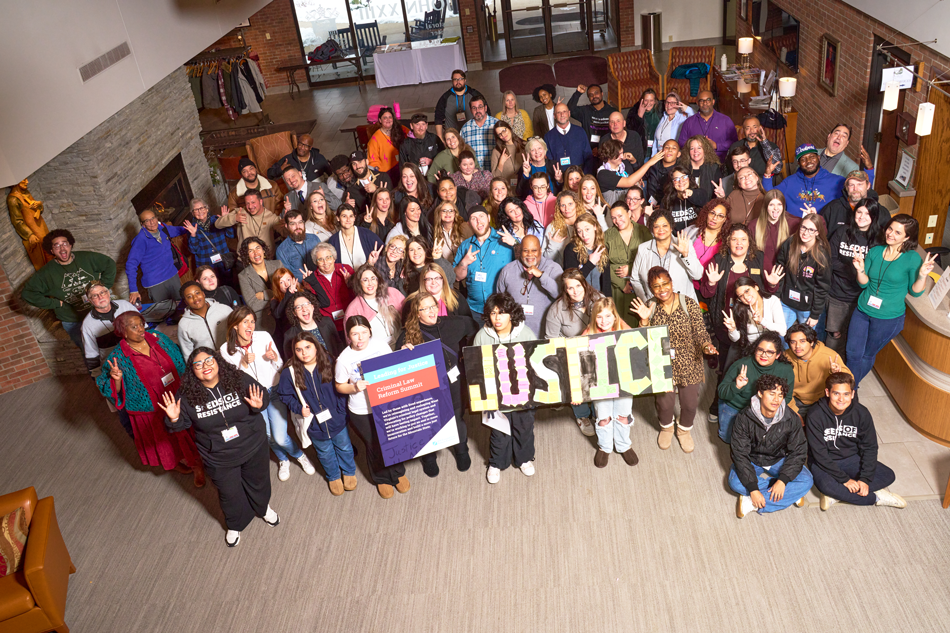
The middle of the funnel needs so much work to shift it from a devastating destination to a helpful stepping stone in our society. While The Just Trust believes the responsibility to improve the middle of the funnel ultimately lives with the public sector, we support private efforts that pilot and catalyze change at scale.
Since The Just Trust started making investments in justice reform in 2022, approximately 19.4% of the impacts we tracked were focused on improving the middle of the funnel. This part of the funnel includes everything the public does not see – the experience inside prisons and jails, as well as sentences that include supervision in lieu of or in addition to confinement.
2024-2025 Snapshots
Tennessee: Stand for Children Tennessee helped defeat a bill that would have imposed fees on parents of youth involved in the justice system and shifted the cost burden of incarceration and supervision onto families.
National: FWD.US produced a new study on the cost of justice involvement for American families. The report unveiled that supporting a loved one who is incarcerated collectively costs families approximately $350 billion a year for communication, visits, and commissary items, in addition to lost wages and other expenses.

Arizona: Dream.org, FAMM, One Voice United, Stand for Children Arizona, and several others worked with legislators to pass SB 1507. The bill establishes a new independent corrections oversight office with authority to investigate conditions across Arizona’s prisons, ensure transparency, protect rights, and regularly report detailed findings to the legislature.
Oklahoma: Right on Crime helped pass a bill to establish an independent oversight committee within the Office of Juvenile Affairs to investigate misconduct allegations.

Florida: Florida Rights Restoration Coalition helped pass a bill that allows people to earn credits toward professional licenses by recognizing certain classes completed during incarceration. It requires the Department of Corrections to work with licensing boards to ensure these achievements count, and helps improve job opportunities and supports successful reentry into the workforce.
Oklahoma: Prison Fellowship worked on a bill that expands eligibility for state tuition aid grants to incarcerated individuals who are enrolled in a prison education program and are within five years of their release. This bill aims to reduce recidivism by helping eligible incarcerated students earn college credentials that make reentry easier and more productive.
.jpeg)
Safely expanding the funnel out of the justice system is a win for everyone. People can return to their loved ones and can begin contributing to their families, communities, and the economy. And for those who are older and sick, pose no risk to public safety, and have earned and proven their rehabilitation, they can live out their final days at home. As a result, overcrowded prisons can breathe a little easier; corrections officers and staff will have safer jobs; and taxpayers will see more benefit from their dollars. This means less money spent on holding people that don’t truly need to be there, and more dollars available to invest in things that proactively create safety in neighborhoods.
Since The Trust started making investments in justice reform in 2022, approximately 22.4% of the impacts we tracked were focused on safely expanding the funnel out. This includes all of the work needed to move people closer to fully exiting the funnel. That might mean preparing to move from incarceration to community supervision, or from supervision to a full exit.
2024-2025 Snapshots
Maryland: The Sentencing Project, with support from FAMM, ACLU and FWD.us, helped pass a bill that creates resentencing opportunities for people convicted of crimes before the age of 25 and have served more than 20 years in prison – people who have served significant time and demonstrated rehabilitation, allowing them to safely reintegrate into their communities.
Georgia: The Sentencing Project, in partnership with FWD.us and Unify.us, helped pass a bill that creates resentencing opportunities for survivors of domestic violence and sexual assault serving long prison terms for acts of self-defense, as well as establishing an affirmative defense at sentencing. This legislation allows individuals to seek resentencing and demonstrate rehabilitation.
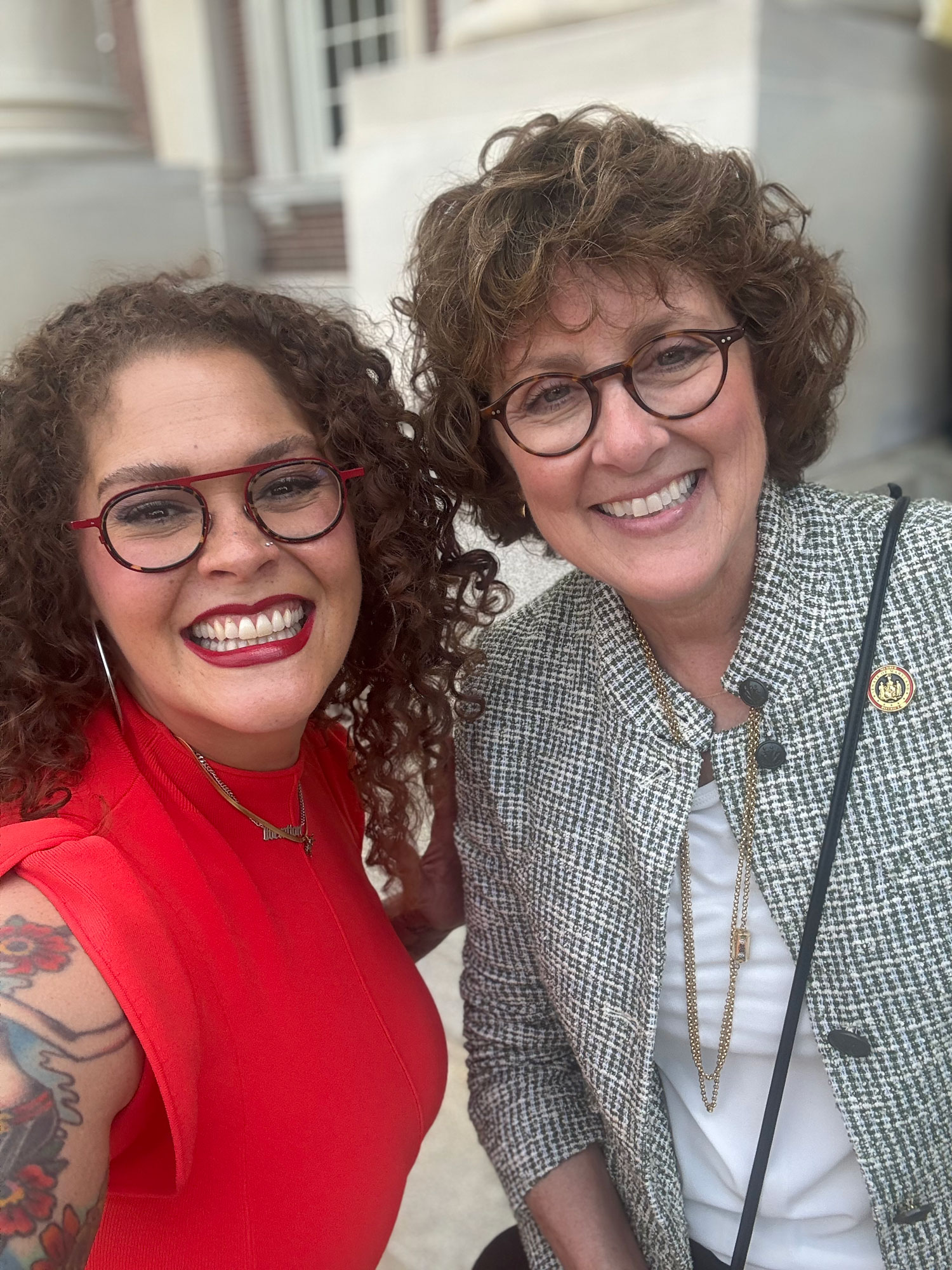
Utah: For The People and Right on Crime helped pass a rule that allows prosecutors to initiate a special attention review at the Board of Pardons & Parole to adjust parole conditions or to review and change prior Board decisions when exceptional circumstances exist.
Federal: The Sentencing Project, REACH of West Virginia, Equal Justice USA and FWD.us advocated for presidential commutations that benefitted over 2,000 people serving outdated, disproportionate, and unjust federal prison terms, sparing 16,360 prison years and three-quarters of a billion dollars in taxpayer savings.
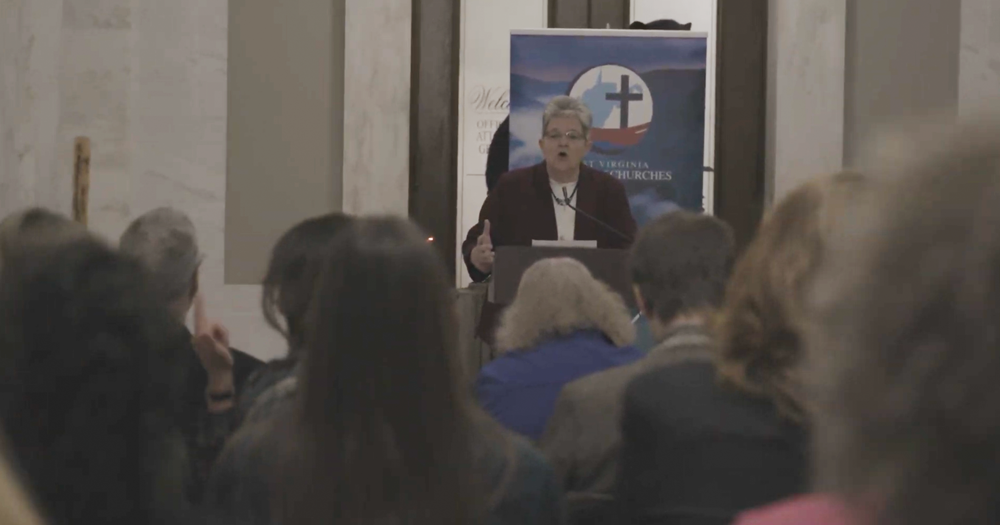
Arizona: Recidiviz partnered with the Arizona Department of Corrections, Rehabilitation, and Reentry (ADCRR) to analyze data and implement a new supervision policy that shifts low-risk individuals to a less restrictive level: Administrative Supervision. Recidiviz then rolled out a tool to identify people who qualify for and can be moved into this new level of supervision. Now, 4,500 people per year – approximately 39% of the state's supervised population – are eligible for Administrative Supervision. By reducing officer contacts by 40% for these individuals, the policy allows parole officers to increase their capacity for high-need clients by 86%--ultimately increasing the success of supervision and the possibility that someone can complete their terms.
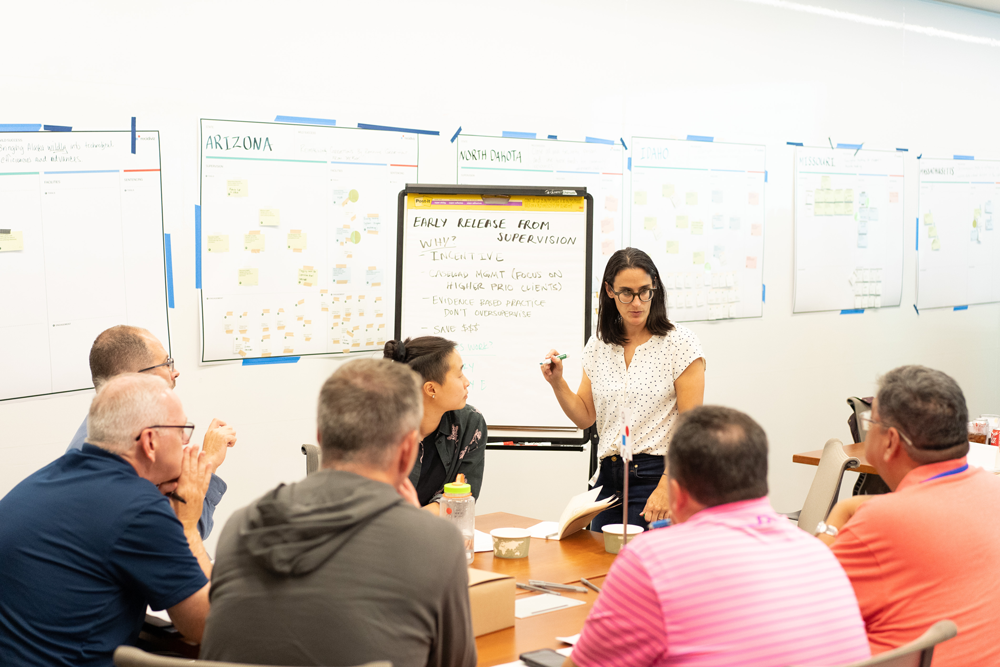
Setting people up to stay out of the justice funnel for good is one of the best things we can do to stabilize our communities and ensure public safety. Part of this is making sure people spend a lot of time getting prepared to come home while incarcerated or under supervision. The other part is making sure people have job prospects, the right skills and training, and access to housing, mental health services, treatment programs, and other support needed to achieve success when they come home.
Since The Just Trust started making investments in justice reform in 2022, approximately 21.7% of the impacts we tracked were focused on helping make sure people stay out of the justice funnel, for good. This includes things like increasing access to jobs and housing, to second chance hiring work, to additional backend treatment and support services that make reentry successful and lasting.
2024-2025 Snapshots
National: JUMP (the Justice and Upward Mobility Project), a project of The Just Trust, launched in early 2025 and is focused on education, employment, and upward mobility for justice impacted youth and adults.
Arizona: Stand for Children Arizona helped pass a law that allows people on probation who join a state or federally-recognized apprenticeship program to work flexible hours and travel out of their approved probation jurisdiction for work, as long as they return home by midnight. It updates the state's rules to support job training and career development while balancing public safety.

Maryland: REFORM Alliance and Clean Slate Now helped pass the Expungement Reform Act of 2025, ensuring that technical violations will no longer serve as a barrier to record expungement for people who completed their supervision sentences. It also expands the list of offenses eligible for expungement and guarantees record sealing for people who were pardoned for marijuana convictions. This impacts thousands of Marylanders with minor, non-criminal supervision violations on their records.
California: The Alliance for Safety and Justice supported a key budget trailer bill that made a 2022 record expungement bill retroactive back to 1973. Thanks to this and several other reforms championed by ASJ in the state in recent years, ~7 million people in California are now eligible for some form of record clearance.
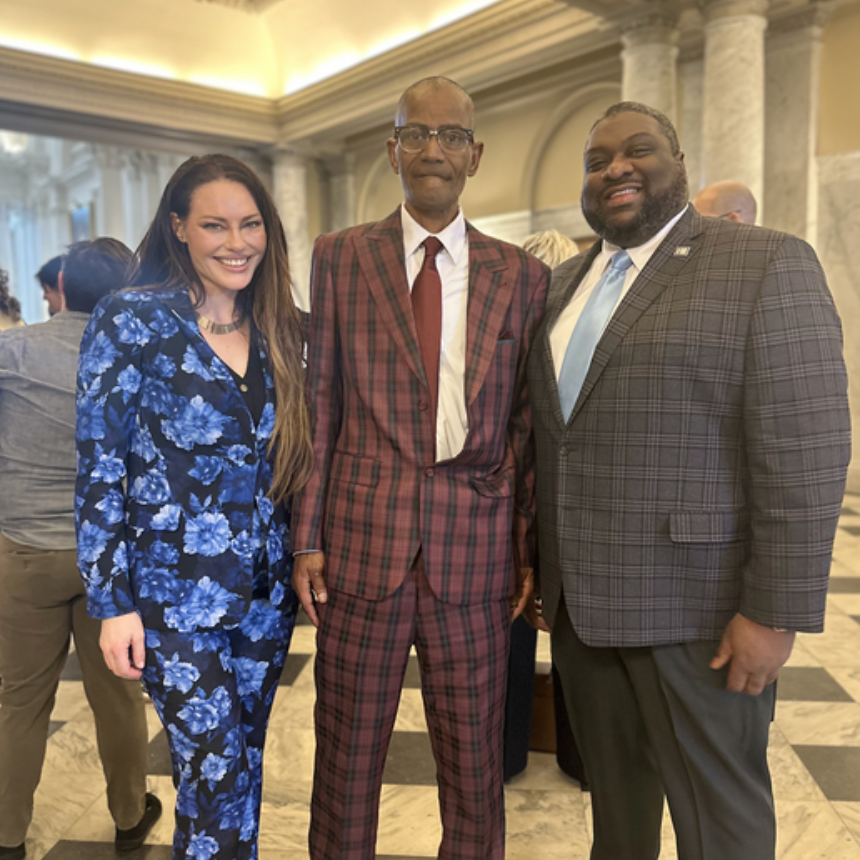
Ohio: Prison Fellowship helped pass legislation that establishes a Certificate of Qualification for Housing. It aims to alleviate barriers to housing by allowing courts to issue the certificate if the individual demonstrates that the certificate will materially assist in obtaining housing, is necessary for living a law-abiding life, and does not pose a risk to public safety.
Utah: Right on Crime supported the passage of a bill that expands access to mental health and county-based services for individuals on probation and parole.
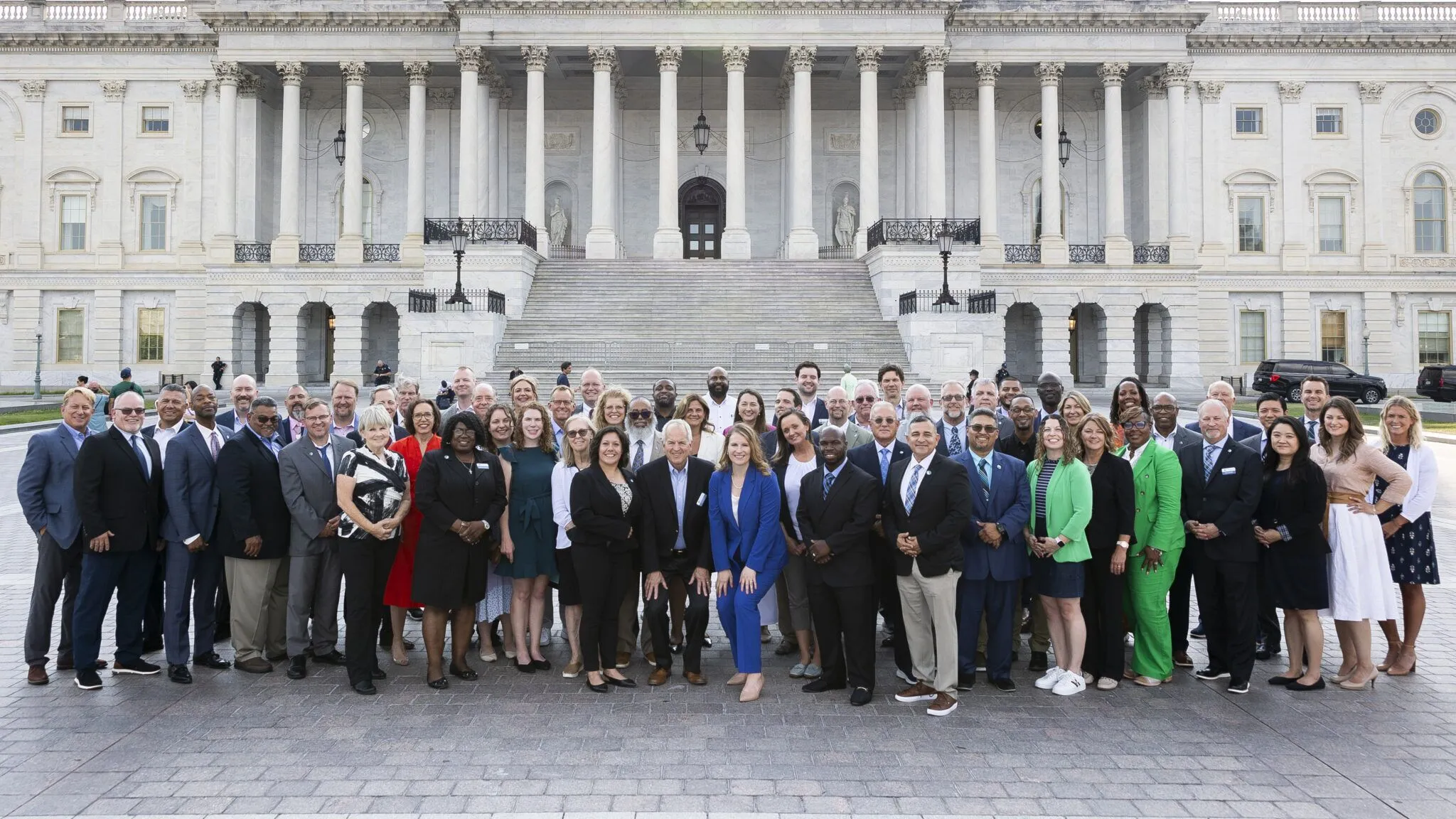
When we started The Just Trust, our goal was to, fund, support, and stabilize a broad ecosystem of partners working all across the justice funnel. Politics and culture will always ebb and flow, but if groups on the ground were strong, nimble, and working in coalition and across party lines where possible, we knew the field could adapt and make progress across the funnel, no matter what. And in the last few years, we’ve seen just that:
Of 18 tracked policy efforts, the most common offensive victories were around re-entry and second chances, representing 14% of all tracked impacts. Next was sentencing reform at 13%, improving conditions at 8.5%, and victims rights at 8%.
The wins tracked occurred in 46 states across the nation and at the federal government level. The states with the most offensive wins for 2022-2025 were California and Oklahoma, followed by Illinois, Virginia, Louisiana, and Mississippi.
Offensive wins are happening all across the country, even if they don’t make the headlines. Between 2022 and 2025, we tracked a 198% year over year increase in offensive impacts and victories across the country. This increase accounts for periods of strong momentum (2022-2023 and 2024-2025), as well as periods of greater headwinds (2023-2024). It reflects the power of sustained funding year over year, enabling our grantees to move nimbly through ever changing cultural and political tides.
As political conditions tightened, our partners pivoted – increasing defensive efforts by 95% from 2022-2025 to safeguard prior wins and resist punitive rollbacks.
In this time, we tracked that our partners helped defeat or mitigate 107 policies that would have arbitrarily widened the funnel into the justice system, and kept people there longer.
Narrative campaigns grew steadily in this period as well – by 156% – as our grantees shifted strategies in a tougher policy environment particularly in 2024 and 2025, investing in tools to sustain public support and shift perceptions of justice and safety.
Implementation efforts have surged more than 355% since 2022 among The Just Trust's grantees, ensuring that the affirmative policy wins from prior years actually went into effect as intended.
22 states and the federal government passed policies advancing youth justice solutions that are data-informed and human-centered.
Across the justice funnel, our partners helped advances, implement, and pass 87 policies to increase transparency in the justice system and 61 policies to improve conditions – centering dignity and humanity – for people in prison and jail and on supervision.
Our grantee partners in the Safer Communities Accelerator have supported the emergence or integration of more diverse safety and response systems in 30 cities, most in close collaboration with local law enforcement.

The Just Trust launched an exciting new initiative in 2025 at NBA All-Star Weekend. JUMP (the Justice and Upward Mobility Project), inspired by our board member Larry Miller, is already making waves. JUMP harnesses the cultural influence of sports, business, and entertainment to reshape narratives and unlock access to education, employment, and economic mobility for youth and adults impacted by the justice system
In 2024 we launched a new podcast When It Clicked, exploring the moment (or moments) people changed their mind about what justice in American can and should be. Season 1 featured guests like Kerry Washington, Sing Sing actor Clarence Maclin, Cristina Dent from End it For Good, and more. We had over 25,000 downloads and were featured on Apple’s top trailers. Catch up now and listen to season two coming in December!
by
the
numbers


The Just Trust operates with the scale and discipline of an institutional funder and the agility of a strategic partner. Through our two entities – The Just Trust for Education (c3) and The Just Trust for Action (c4) – we are structured to responsibly take in significant philanthropic capital and strategically invest it into the field, fueling a politically and regionally diverse ecosystem of organizations that collectively drive durable and responsible change. The data below illustrates how we steward resources: efficiently deployed, strategically diversified, and transparently tracked.
Across the country, a new justice funnel is emerging, one that delivers safety, accountability, and opportunity together. The question is not if change is possible; it’s whether we’ll invest fast enough to make it real.
The Just Trust is uniquely positioned to do just that. We pool resources to connect policy change, storytelling power, and innovation into a single catalytic force that matches the urgency of this moment. We’re not just another funder. We’re the connective tissue that makes durable change possible. Here’s what sets us apart:
- We unite unlikely allies. With bipartisan credibility and partnerships spanning law enforcement, business, faith, crime survivors, and directly impacted people, we build coalitions others cannot, grounded in Americans’ deepest values of safety, family, and prosperity.
- We blend grantmaking with innovation. We fund what works and build what’s missing, ensuring the field has the tools, data, and storytelling capacity to win.
- We provide the backbone for progress. We do the hard, behind-the-scenes work of strategy, convening, communications, and evaluation, so partners can stay focused on driving change.
- We move money strategically and with speed. We pool donor dollars, spread risk, and deploy resources where they’ll have the greatest and most immediate impact so every dollar goes further.
When funders invest in The Just Trust, they multiply their impact across an entire ecosystem, accelerating bipartisan progress and proving that justice reform delivers lasting safety and prosperity. Now is the time to act — with urgency, courage, and coordination equal to the scale of the challenge. We hope you’ll join us in transforming the justice funnel, for good.
.png)


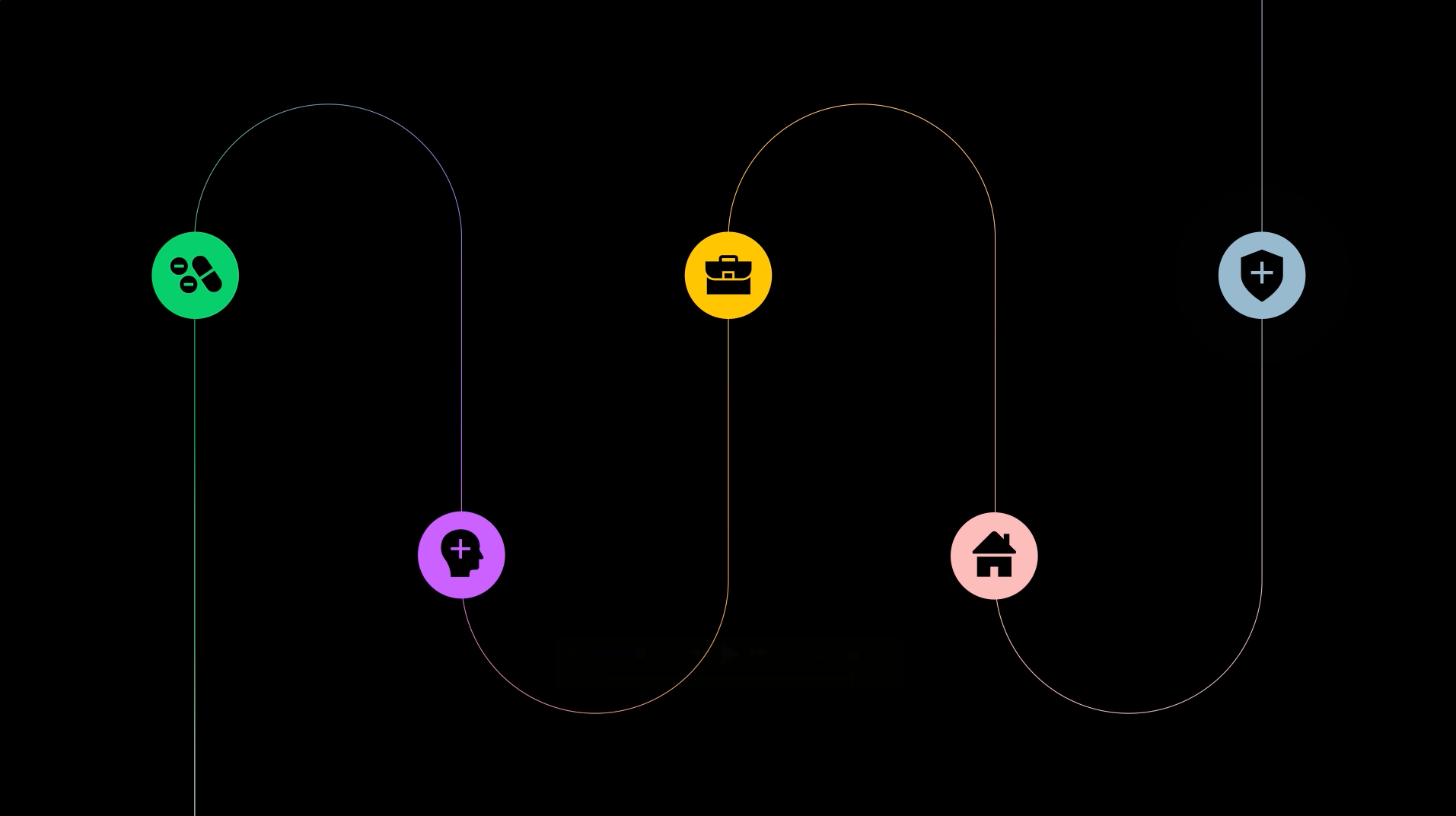



















































































































































%2520-%2520United%2520Way-200px.png)

















